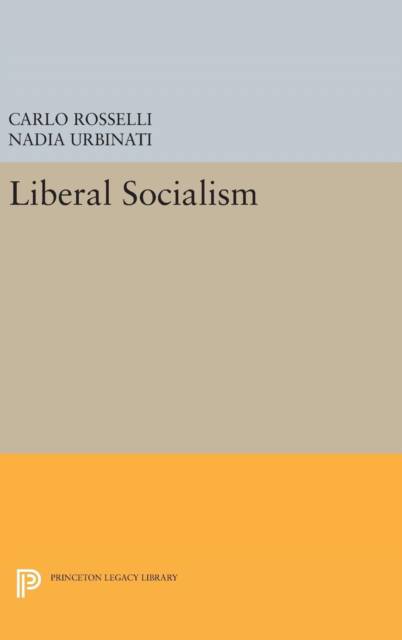
- Retrait gratuit dans votre magasin Club
- 7.000.000 titres dans notre catalogue
- Payer en toute sécurité
- Toujours un magasin près de chez vous
- Retrait gratuit dans votre magasin Club
- 7.000.0000 titres dans notre catalogue
- Payer en toute sécurité
- Toujours un magasin près de chez vous
Description
First published in 1930, amidst the collapse of socialist ideals and the onset of fascism throughout parts of Europe, Liberal Socialism is a powerful and timely document on the ethics of political action. During his confinement for his anti-fascist beliefs, the Italian political philosopher Carlo Rosselli (1899-1937) wrote this work not only as a critique of fascism, but also as an investigation into the history of Marxism and the need for a liberal reformulation of socialism. In this first English- language edition, Nadia Urbinati highlights both the historical and theoretical importance of Liberal Socialism, which continued to inspire the anti-fascist movement "Giustizia e Liberta." long after Rosselli's assassination by Mussolini's agents, and which outlines a possible rebirth of the socialist and democratic movements. Rosselli's analysis provides an illuminating interpretation of the ideological crisis of Marxism, in its positivistic version, during the late nineteenth century and exposes the intellectual weakness of revisionist efforts to delineate new versions of Marx's doctrine. He encourages readers to view socialism as an ethical ideal and to consider whether Marxist or liberal methods combine better with socialism to achieve that ideal. Rosselli opts for a liberal socialism that avoids the shortcomings of uncontrolled laissez-faire but favors state intervention to secure public services and social rights.
Originally published in 1994. The Princeton Legacy Library uses the latest print-on-demand technology to again make available previously out-of-print books from the distinguished backlist of Princeton University Press. These editions preserve the original texts of these important books while presenting them in durable paperback and hardcover editions. The goal of the Princeton Legacy Library is to vastly increase access to the rich scholarly heritage found in the thousands of books published by Princeton University Press since its founding in 1905.Spécifications
Parties prenantes
- Auteur(s) :
- Traducteur(s):
- Editeur:
Contenu
- Nombre de pages :
- 204
- Langue:
- Anglais
- Collection :
- Tome:
- n° 5179
Caractéristiques
- EAN:
- 9780691629995
- Date de parution :
- 21-03-17
- Format:
- Livre relié
- Format numérique:
- Genaaid
- Dimensions :
- 156 mm x 234 mm
- Poids :
- 467 g

Les avis
Nous publions uniquement les avis qui respectent les conditions requises. Consultez nos conditions pour les avis.






